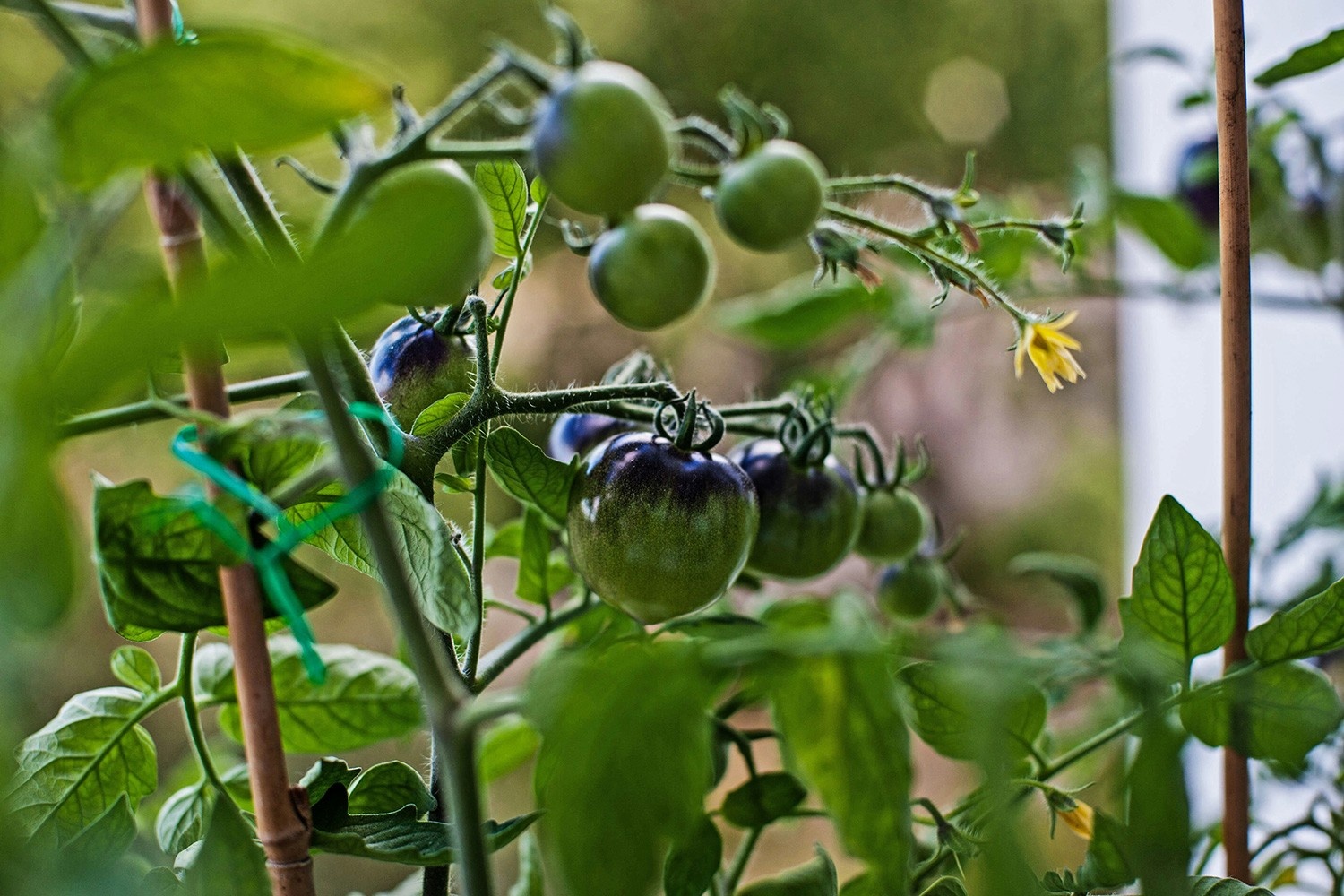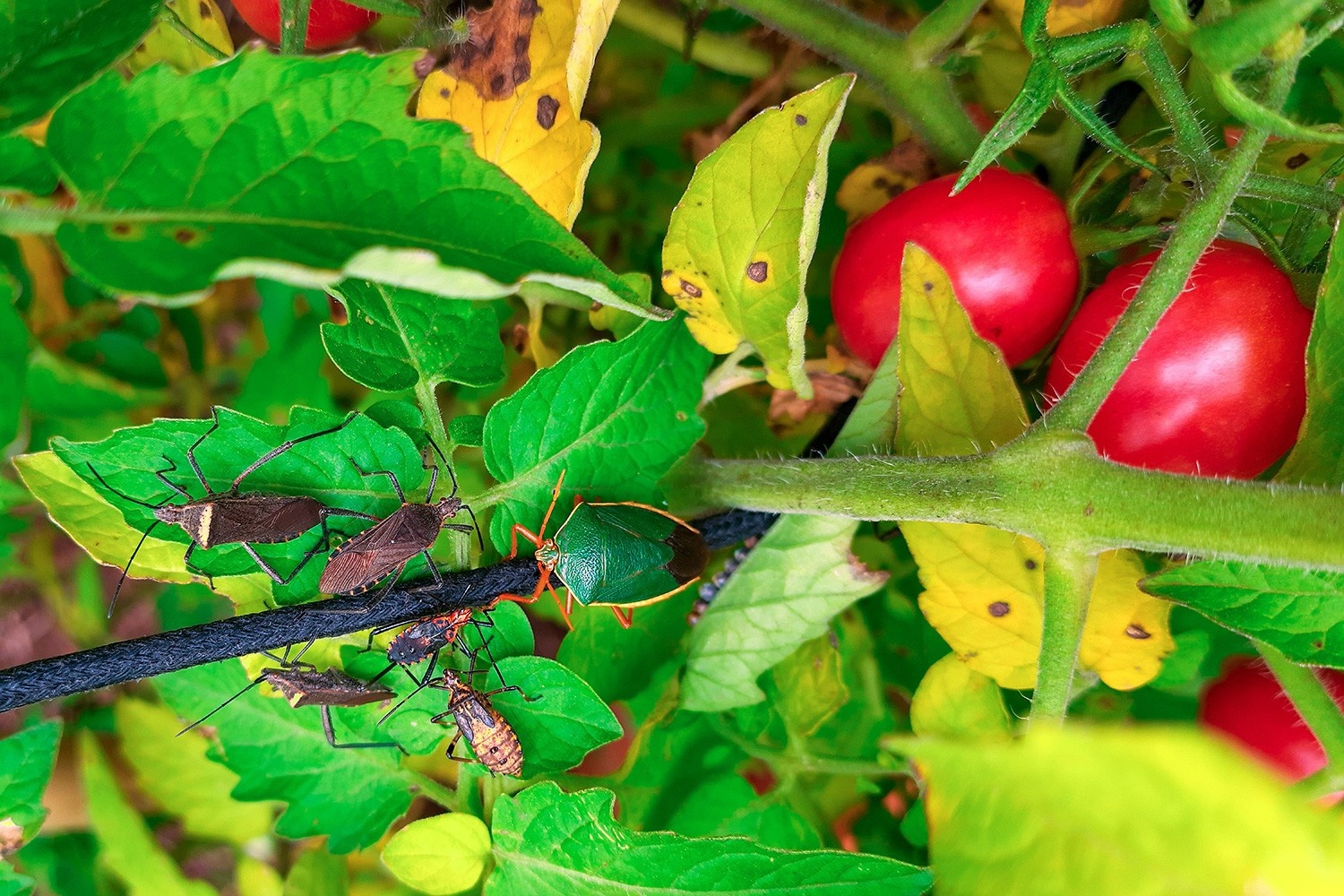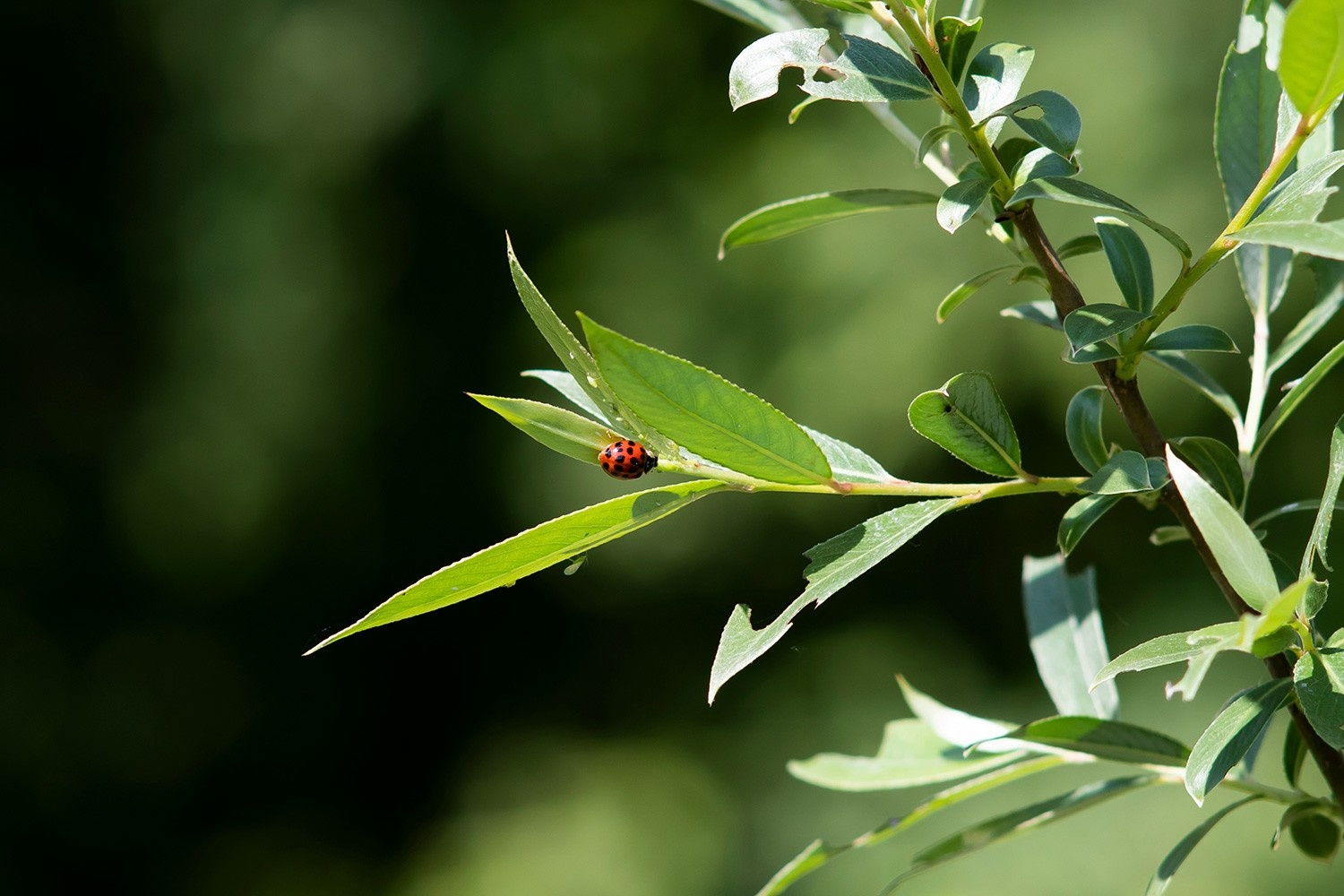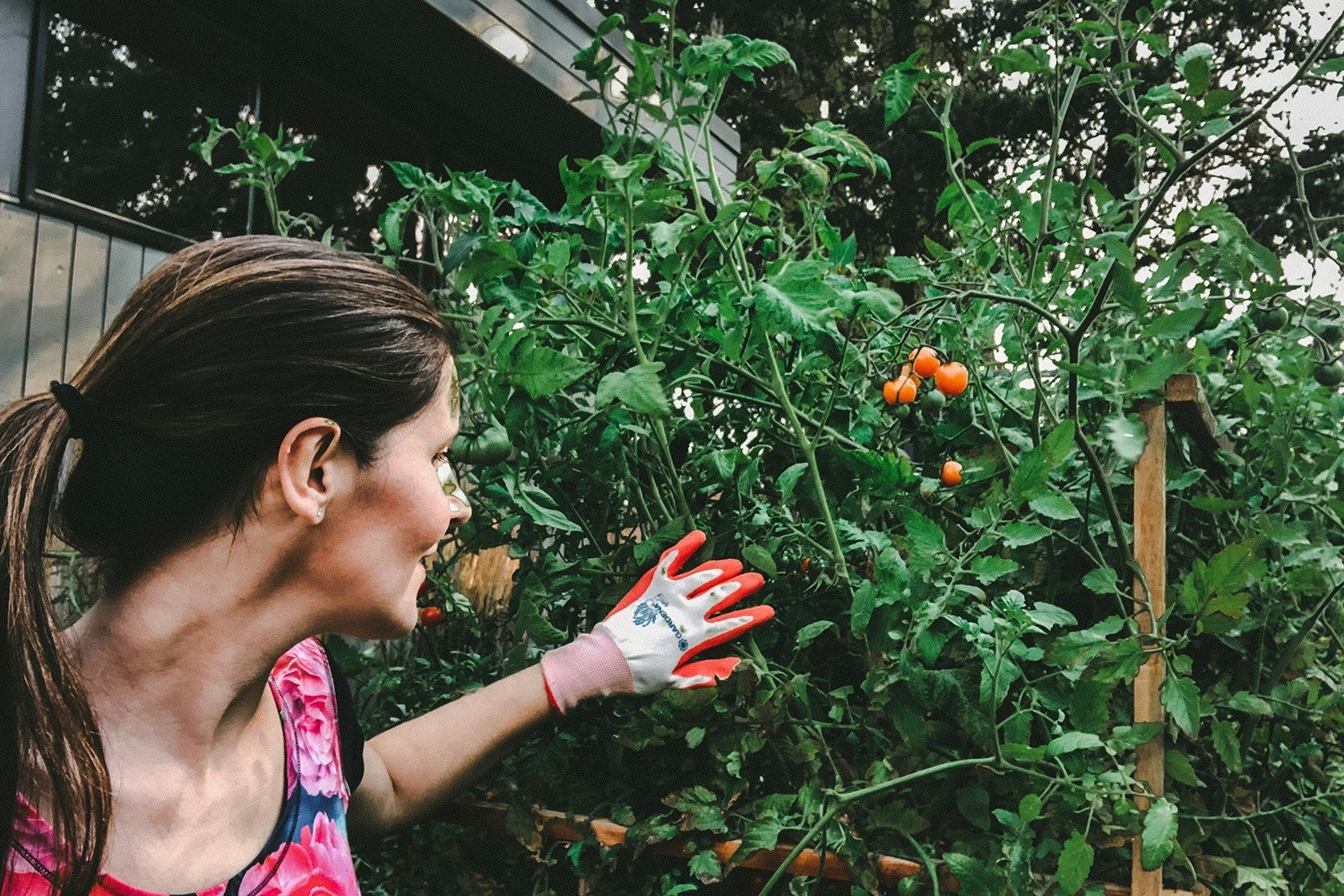“Nature ebbs and flows — everything dies and grows anew. As gardeners, we must accept some loss and trust natural predators to keep balance.“

Waiting for tomato plants to ripen sans pests. Courtesy of Tom Jur via Unsplash
How Do You Get Rid of Garden Pests Without Chemicals?
You’re sipping your morning coffee, inspecting your tomato plants—when you spot the signs. Ragged holes in the lettuce. Chewed-up tomato leaves. Glossy beetles perched on petals. Slugs, Colorado potato beetles, and Japanese beetles are among the most common garden pests, and they can wreak havoc on your crops.
Reaching for a chemical pesticide might feel like the obvious fix—but synthetic sprays can damage soil health, harm pollinators, and linger in your produce. Fortunately, there are natural pest control methods that protect your garden and the environment.
Here’s how to manage garden pests organically — using expert advice, ecological tools, and a little patience.
How to Identify Garden Pests Before Taking Action
It starts with observation.
“When you catch pests early, you can slow or halt their reproduction,” says entomologist Marcus Griswold of Your Bugs Club.
Get in the habit of inspecting your plants regularly. Look for signs like:
- Holes in leaves
- Sticky residue
- Stippling or yellowing
- Webbing or eggs on stems or leaf undersides
“You can also tap foliage over white paper or use sticky cards to check for small flying insects like whiteflies,” says Tammy Sons, founder and CEO of TN Nursery.
Often, mild infestations will resolve on their own, thanks to beneficial predators like birds, ladybugs, and hoverflies. Only intervene when pests are rapidly spreading or damaging young plants.
“Think management of the problem, not eradication right away,” advises Luke Hammond, expert gardener at Seedtime, a garden planning app.

Pests can wreck havoc on your garden but there are sustainable ways of handling them. Courtesy of Carlos Macedonio via Unsplash
Natural Pest Control Methods for Common Garden Pests
When it’s time to take action, start with these low-impact methods:
For Aphids:
- Blast them off with a strong spray of water
- Attract ladybugs and lacewings
- Use neem oil spray or insecticidal soap
For Squash Bugs:
- Remove egg clusters from leaf undersides
- Use row covers to protect plants
- Attract tachinid flies and parasitic wasps
For Japanese Beetles:
- Handpick early in the morning and drop them in soapy water
- Use floating row covers during peak season
- Avoid beetle traps, which can attract more pests than they remove
For Slugs:
“When I saw my plants covered in slime trails last season, I knew the slugs had arrived,” says Griswold. “I tried picking them off, but there were too many.”
Instead, he turned to the classic beer trap method:
- Pour beer into a shallow container
- Bury it so the rim is at soil level
- Place near affected plants
- Check and refresh daily
“I used a hoppy IPA, but any beer works,” Griswold says. “By morning, the trap was full. I repeated this until I didn’t see any more slugs.”

Attracting ladybugs to your garden can help deal with unwanted pests. Courtesy of Lucas Van Oort via Unsplash
Attracting Beneficial Insects to Control Garden Pests
One of the most sustainable ways to keep pests in check is by building a resilient garden ecosystem.
“You want to encourage predators in your garden,” Griswold says. “Don’t accidentally kill the bugs that are eating your pests.”
Key predators to attract include:
- Ladybugs: eat aphids, mites
- Ground beetles: eat slugs, caterpillars
- Lacewings: eat thrips and soft-bodied insects
- Parasitic wasps: target caterpillars, beetle larvae
To bring them in:
- Plant native flowering plants like yarrow, dill, calendula, and milkweed
- Avoid all pesticides—even organic ones can kill beneficials
- Provide shallow dishes with water and stones for insects to land on
- Let parts of the garden go wild to create habitat and shelter
“Even those pesky wasps are voracious pest control machines,” Griswold says.

Pests don't have to interfere with the joys of gardening. Courtesy of Jane Thomson via Unsplash
Companion Planting for Natural Pest Deterrence
Strategic planting can help repel pests and improve your garden’s resilience.
“Think about companion planting as part of your overall pest management strategy,” says Hammond. “Healthy, biologically active soil with healthy plants is your first line of defense.”
Top Pest-Repelling Companion Plants:
- Basil: repels flies and thrips when planted near tomatoes
- Garlic & onions: deter aphids, beetles, and spider mites
- Marigolds: protect against nematodes and aphids
- Nasturtiums: act as a trap crop for aphids and squash bugs
- Thyme: helps keep flea beetles at bay
- Lavender, citronella, and tea tree: discourage carpenter bees
“I encourage creating a pest control moat around your garden to deter pests from entering,” Griswold adds.
Meet Our Experts
Dr. Marcus Griswold
Entomologist, environmental scientist, and citizen‑science advocate behind Your Bug Club. Dr. Griswold’s accessible, biology-driven articles explore topics such as wool carder bees and mosquito behavior. Learn more about his work and insights on Your Bug Club.
Tammy Sons
Founder and CEO of TN Nursery, Tammy brings decades of expertise in growing native plants and guiding gardeners toward biodiverse, pest‑resistant ecosystems.
Luke Hammond
Lead Educator at Seedtime, Luke helps gardeners build resilient, organic systems with a blend of data-driven strategies and time-tested ecological practices.
Frequently Asked Questions About Natural Pest Control
What is the most effective natural garden pest control?
Attracting beneficial insects, handpicking beetles, using beer traps for slugs, and companion planting with herbs and flowers are all effective and chemical-free.
How do I stop slugs from eating my vegetables?
Use beer traps, handpick at night, or sprinkle diatomaceous earth around plants. Attract slug predators like ground beetles.
What plants keep bugs away naturally?
Try marigolds, basil, garlic, thyme, and nasturtiums—these companion plants deter a variety of pests.
Can I control pests without using pesticides?
Yes. Many pests can be managed through habitat design, physical barriers, beneficial insects, and plant pairings.
What insects are good for pest control?
Ladybugs, lacewings, hoverflies, parasitic wasps, and ground beetles are all natural pest predators.
Final Thoughts: Partnering With Nature
Natural pest control isn’t about perfection but finding balance in the garden.
“Nature goes in ebbs and flows, and everything dies and grows anew,” says Griswold. “As ecological gardeners, we should accept that we’ll lose some plants to pests. But with the right practices, we can work with nature, not against it, to grow stronger, more resilient gardens.”

Bridget Shirvell is an independent journalist based in Connecticut. Her food, parenting and environmental reporting has appeared in publications including The New York Times, The Washington Post, Martha Stewart Living, Good Housekeeping and more. An environmentalist for as long as she can remember, her climate solutions work took on new urgency after becoming a parent. Bridget lives in an old house in Mystic, Connecticut with her daughter and dog. She can be found online at breeshirvell.com. Follow Bridget on IG @breeshirvell.



